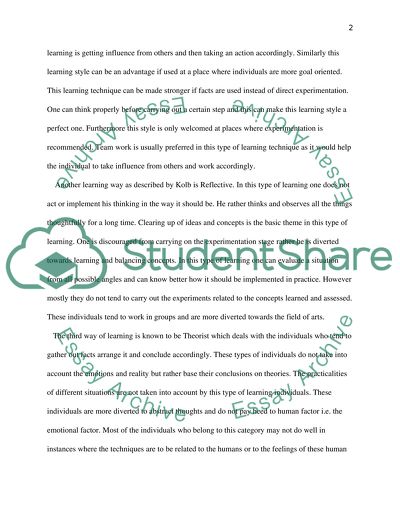Cite this document
(“Learning Theory Essay Example | Topics and Well Written Essays - 1000 words”, n.d.)
Learning Theory Essay Example | Topics and Well Written Essays - 1000 words. Retrieved from https://studentshare.org/education/1504071-learning-theory
Learning Theory Essay Example | Topics and Well Written Essays - 1000 words. Retrieved from https://studentshare.org/education/1504071-learning-theory
(Learning Theory Essay Example | Topics and Well Written Essays - 1000 Words)
Learning Theory Essay Example | Topics and Well Written Essays - 1000 Words. https://studentshare.org/education/1504071-learning-theory.
Learning Theory Essay Example | Topics and Well Written Essays - 1000 Words. https://studentshare.org/education/1504071-learning-theory.
“Learning Theory Essay Example | Topics and Well Written Essays - 1000 Words”, n.d. https://studentshare.org/education/1504071-learning-theory.


